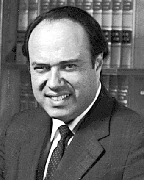The Massachusetts Appeals court in the 2009 case of Mary Ann Morse Healthcare Corp. v. Framingham has clarified the law of charitable exemptions for real estate. By statute, to be tax exempt, a parcel of real estate in Massachusetts must be both owned and occupied by a charitable entity.
The court determined that when a charitable entity owns a building which is occupied by the residents as well as by the employees of the charitable entity, the property will be tax exempt.
The court said that, as long as the occupancy was shared with the employees of the non-profit entity, the occupancy requirements of Massachusetts law were met.
The relevant law exempts from local taxation "real estate owned by or held in trust for a charitable organization and occupied by it or its officers for the purposes for which it is organized...or by another charitable organization or organizations or their officers for the purposes of such other charitable organization or organizations."
The Appeals Court in the Morse case correctly ruled that the occupancy test does not require exclusive occupancy by the employees of the charity. The occupancy test is satisfied as long as the residents and employees of the charity share the building.
This is extremely important for the many buildings throughout Massachusetts which are financed through the HUD 202 program and leased to low income elderly tenants.
Such buildings become tax exempt under the Morse case. The charity and the municipality can, of course, enter into a plan for payment in lieu of taxes (PILOT) but this does not affect the fact that the assessment of the property should be zero and that the property should be tax exempt.
Saul Feldman is a real estate attorney with Feldman & Feldman, P.C., Boston, Mass.
Tags:









